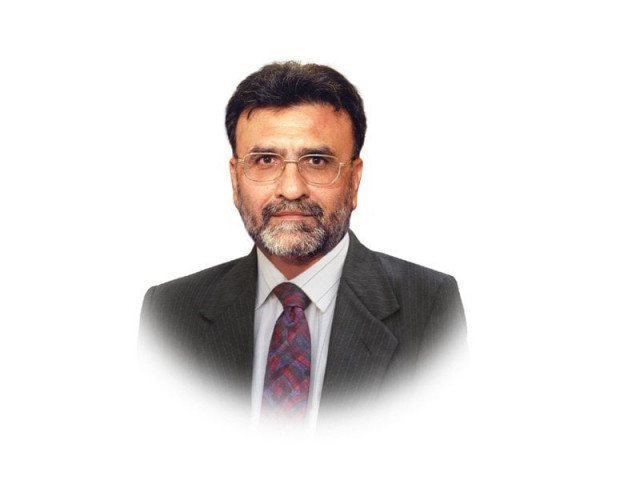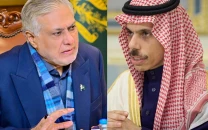The unreasonable expectations from a ‘father figure’
The cynical mindset of our chattering classes never stops astonishing me.

After many decades of perpetual struggle with the slogan of “no taxation without representation,” the Brits finally extracted the right of choosing their governments many centuries ago. The King or the Queen stayed as ‘sovereigns’ even after that, but without any real authority over everyday governance.
The same ‘sovereign’ would address parliament at the end of its each working year. The speech a ‘sovereign’ reads on this occasion, however, is prepared by the prime minister’s office. Through the same, a sitting prime minister would explain and defend the policies of his or her government. The ‘sovereign’ can’t even change a comma, forget any one word or a whole sentence prepared for him or her by the Prime Minister’s Office for this occasion. In essence, the ritual of a head of state’s address to parliament simply amounts to owning the policies of a sitting government by ‘the sovereign’.
Like many countries of the present-day Commonwealth, India and Pakistan follow the same practice. In India, for example, President Pranab Mukherjee had been a veteran activist of the Congress. After managing a crushing defeat of the same party in recent elections, Narendra Modi has now been elected the prime minister of that country. Still, at the end of the parliamentary year, Mukherjee will just read the speech prepared for this occasion by Modi’s office. And that obviously will highlight policies of the BJP government.
Thanks to our very own history, though, most Pakistanis are not able to consider the spirit behind the annual presidential address to a joint parliamentary sitting. They always expect something sensational from it. And I do not blame them for this.
Patriarchal presidents, who mostly ruled in military uniform, dominate most of our political history. Such presidents always preferred maintaining a disdainful distance from the usual doings of mostly “corrupt and incompetent” politicians. General Zia had brought Muhammad Khan Junejo to Prime Minister’s Office after an obsessive management of the electoral process in 1985. Yet, during his annual addresses to joint parliamentary sittings, he would often sound pointing out flaws in various doings of the Junejo government. He also adopted a deliberately dry and stern tone and tenor to deliver such addresses.
As an elderly icon of oligarchs, Ghulam Ishaq Khan continued with the practice, although somewhat softly. While turning against the party that had launched him to the Presidency, Sardar Farooq Khan Leghari resorted to similar posturing. Things turned different with General Musharraf, though. He came but only once to address the joint parliamentary sitting and felt annoyed with the anarchistic din that the then opposition had created during his speech in 2003. After this bad experience, he never cared to meet the constitutional obligation of addressing the joint parliamentary sitting.
Although surrendering the intrusive powers of a patriarchal president, Asif Ali Zardari was perceived as if in complete control and command of the two prime ministers working for him. Nothing extraordinary was thus expected from his annual addresses to joint parliamentary sittings.
Mamnoon Hussein hardly had any choice but to read the speech prepared for him by the Prime Minister’s Office while delivering his maiden annual address to a joint parliamentary sitting Monday. Yet a good number of chattering classes remained obsessively hooked to the idea of expecting something sensational from his address. Many of the highly educated types rather made me laugh by suggesting that as a “father figure,” the president should have reprimanded the prime minister for stirring the feeling of not so covert tensions that we have seen simmering between the government and a ‘sensitive institution’ of the state and the national security these days. Instead of living up to such expectations, President Hussein rather sounded helplessly pleading to “state institutions” to stay put in their respective spheres.
Politically speaking, however, for me too upsetting was the absence of almost half the full strength of the senate, an institution supposedly affirming the federal credentials of our state, from the Monday sitting. But Nawaz Sharif had asked for it by not attending even one sitting of this house since elected to prime minister’s office for the third time in June 2013. The ANP senators rather wanted to agitate about it while shouting during the sitting, but the diplomatic persuasions by the likes of Aitzaz Ahsan and Raza Rabbani finally convinced them to merely stay out of it. That helped prevent some “ugly scenes” as well. And in this respect Jamshed Dasti appeared too lonely and pathetic by attempting to steal media attention with unjustified interruption and shouts.
Published in The Express Tribune, June 3rd, 2014.

1724319076-0/Untitled-design-(5)1724319076-0-208x130.webp)

















COMMENTS
Comments are moderated and generally will be posted if they are on-topic and not abusive.
For more information, please see our Comments FAQ